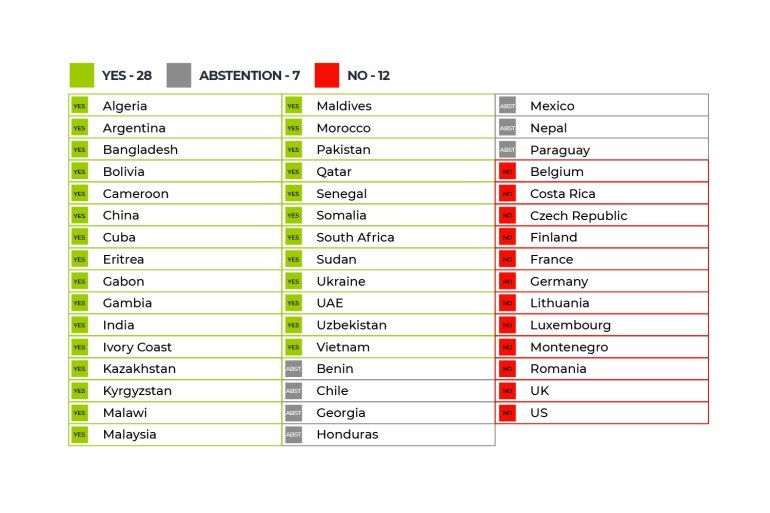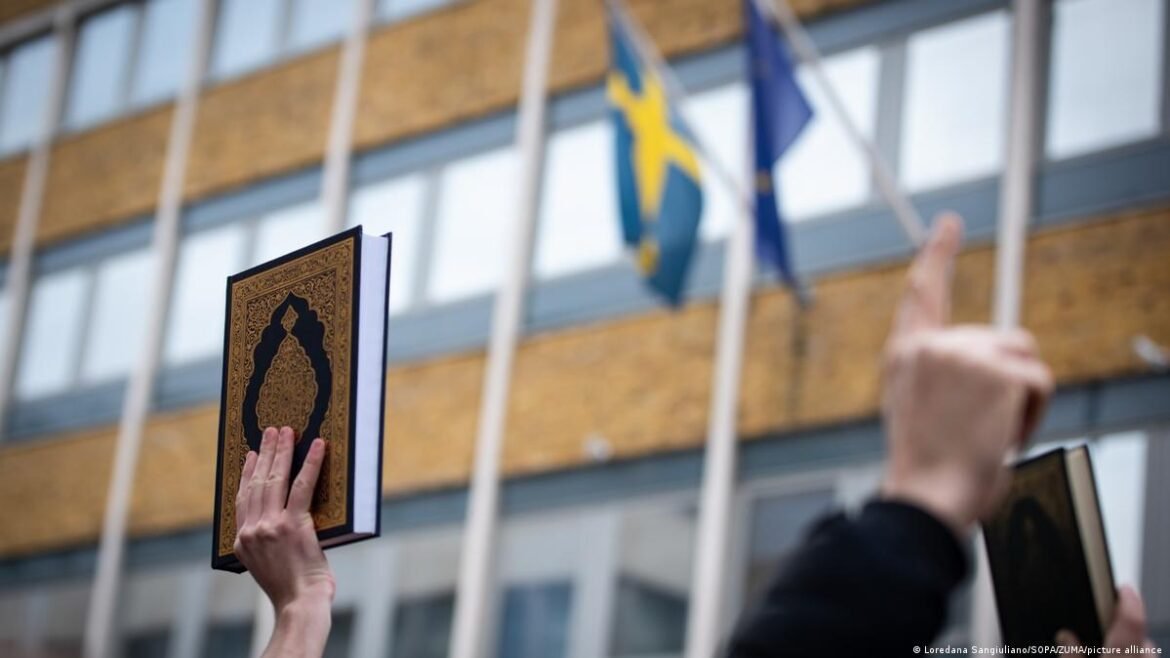With hate speech growing worldwide, the UN Human Rights Council passed a motion to condemn Quran burnings and religious hatred following a debate after the Quran burning incident in Sweden.
Following widespread Muslim outrage over the burning of a Quran in Sweden, the United Nations Human Rights Council passed a motion on Wednesday condemning such acts of religious hate. The resolution, introduced by Pakistan on behalf of the 57-nation Organisation of Islamic Cooperation (OIC), calls for the U.N. human rights chief to publish a report on religious hatred and for states to review their laws and close any loopholes that could “impede the prevention and prosecution of acts and advocacy of religious hatred.”
The resolution condemns all manifestations of religious hatred, including “public and premeditated acts of desecration of the holy Quran,” and calls for accountability for those responsible. It also urged nations to “prevent and prosecute acts and advocacy of religious hatred that constitute an incitement to discrimination, hostility, or violence”
The United States, the European Union, and other Western countries strongly opposed the resolution on the grounds that it violated free speech laws.
How the countries voted?
The resolution was enacted on Wednesday with 28 countries voting in favor, 12 against, and 7 abstaining.
Voted in Favor–
Algeria, Argentina, Bangladesh, Bolivia, Cameroon, China, Cuba, Eritrea, Gabon, Gambia, India, Ivory Coast, Kazakhstan, Kyrgyzstan, Malawi, Malaysia, Maldives, Morocco, Pakistan, Qatar, Senegal, Somalia, South Africa, Sudan, Ukraine, UAE, Uzbekistan, and Vietnam.
Voted against-
Belgium, Costa Rica, Czech Republic, Finland, France, Germany, Lithuania, Luxembourg, Montenegro, Romania, UK and USA.
Abstained from Voting
Benin, Chile, Georgia, Honduras, Mexico, Nepal, and Paraguay.

Why the resolution was necessary?
Last month, on June 18, Salwan Momika, an Iraqi-born protester, caused indignation throughout the Muslim world by ripping pages from the Quran, wiping his shoes with some of them, and burning others outside a mosque in Stockholm during Eid al-Adha. The Swedish embassy in Baghdad was briefly stormed, Iran stalled sending a new ambassador to Stockholm, and the Organization of Islamic Cooperation (OIC) condemned Sweden’s authorities.
OIC requested that the UN human rights council in Geneva discuss the matter. Türkiye also voiced its outrage, citing “vile protests against the holy book” in Sweden as one of its justifications for withholding approval of Sweden’s NATO membership application. On Monday, Recep Tayyip Erdogan, the president of Turkey, consented to withdraw his veto and support the application.
Bangladesh has also expressed profound concern over such heinous acts of insulting the sacred values and religious symbols of Muslims, in the name of ‘freedom of expression.’ On Friday, thousands of Bangladeshis rallied in the capital against the burning of the Quran.
Last week, Pakistan’s foreign minister, Bilawal Bhutto Zardari, addressed the United Nations Security Council and described such acts as an “incitement to religious hatred, discrimination, and violence” that occurred with “government sanction and a sense of impunity.” This view was shared by ministers from Iran, Saudi Arabia, and Indonesia.
Stockholm and Malmo had previously witnessed a number of similar events. Swedish police got applications for more, from people wishing to burn religious texts involving the Quran, the Bible and the Torah.
The Swedish government issued a statement expressing its strong rejection of “this Islamophobic act” which “in no way” reflected its views. However, this drew harsh criticism from free speech advocates, who pointed out that the protester had remained within the law and exercised his constitutional right to free speech.
Officials in Stockholm are concerned that the situation could escalate as it did in 2005 when a Danish newspaper published caricatures of the prophet Muhammad (PBUH).
Is West’s influence waning at UNHRC?
The outcome of the vote is a significant setback for Western nations at a time when the OIC has unprecedented clout in the council, the only government-led body that protects human rights globally. The Geneva-based Universal Rights Group director, Marc Limon, stated that the outcome demonstrated that “the West is in full retreat at the Human Rights Council. They’re increasingly losing support and losing the argument.”
UN human rights chief Volker Turk told the UNHRC that inflammatory acts against Muslims, as well as other religions or minorities, are “offensive, irresponsible and wrong”.
Michele Taylor, the U.S. Permanent Representative to the U.N. Human Rights Council, said the United States concerns about the initiative “were not taken seriously.”
“I believe with a little more time and more open discussion, we could have also found a way forward together on this resolution,” she said.
“Stop abusing freedom of expression,” said Indonesia’s Foreign Minister Retno Marsudi. “Silence means complicity.”
West’s argument of ‘Freedom of Expression’ to defend religious hateful activity like Quran burning is lost to the rest of the world, particularly Asia and Africa. The countries that voted against the resolution are exclusively European with the addition of USA. The failure of Western countries, who often portray themselves as the flag bearer of Human Rights, to comprehend the human rights value of Asian and African countries is becoming a growing issue. For UNHCR to function as a global forum for Human Rights these fundamental differences must be ensured.


